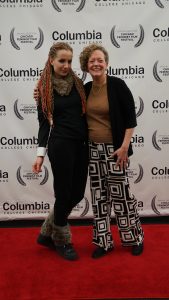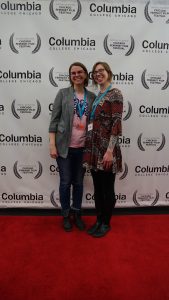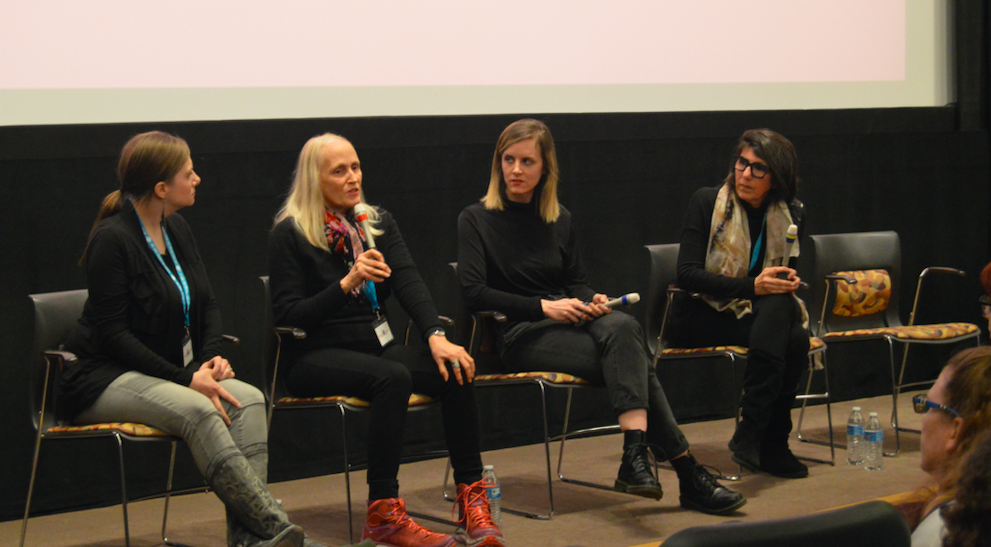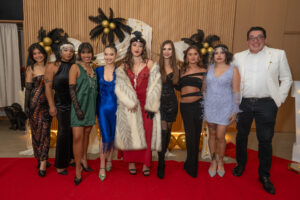In recent years, the film industry has been changing to accommodate the works of women, people of color and the LGBTQ+ community.
Just this year, the Oscars witnessed one of its most diverse ceremonies after decades of domination of the golden standards of art by straight, white men. This was a notable achievement for representation in the cinema scene, though there is still a long way to go.
From Yalitza Aparicio’s nomination for best actress in “Roma,” to Hannah Beachler and Ruth E. Carter’s wins for production and costume design in “Black Panther,” the night was especially victorious for women of color.
As March is International Women’s Month, time should be taken to recognize women—especially women of color—for the groundbreaking work they’ve done to burst through the glass ceiling of cinema.
Despite society’s gradual tendency toward the embrace of diversity, there still aren’t many spaces for women in film. Only 4 percent of directors for the top 100 grossing films of 2018 were women. From 2007 to 2017, only 21 percent of the most popular films were produced by women.
The exclusion of women and their voices from film goes back almost as far as the medium itself. 1896 saw the world’s first female director, Alice Guy-Blaché, who is memorialized in “Be Natural,” a documentary film directed by Pamela B. Green.
Green has made it her mission to take back the narrative of prominent women in history with her documentary, which tells the story of Guy’s pioneering role in establishing the film industry and the rules of cinema. Guy contributed to the creation of over 1,000 films through writing, directing and cinematography, yet only around 100 of her works have been preserved, and her name has been virtually erased from the history books.
Over a century later, Green was told it would be “career suicide” to make the documentary about Guy, but she proceeded anyway.

“Around 70 percent of the people I pitched my ideas [to] said I won’t make it,” said Julie Boehm, a classical artist and filmmaker from Germany whose short film, “Paris You Got Me,” hit a roadblock after a failed crowdfunding campaign.
Boehm’s film centers around the story of two struggling artists who reflect the challenges she and her friend have faced as independent artists.
Co-directors Marion Lipshultz and Rose Rosenblatt highlighted contemporary women’s rights issues in their documentary “Bei Bei.” The film follows the harrowing story of Bei Bei Shuai, a Chinese immigrant who was charged with murder after her attempted suicide while pregnant was linked to the death of her newborn child. Interwoven with poignant real-life events, Lipschutz and Rosenblatt explore the intersectionality of mental health, the criminal justice system and reproductive rights.
Both said they wanted audience members to leave the film more enlightened than they came.
“I hope that they’ve had a vicarious experience of somebody else’s life,” Lipschutz said. “In the way that a novel or a film or some form of art gives you.”
Green, Boehm, Lipschutz and Rosenblatt showcased their unique and dynamic works at Columbia College Chicago’s Feminist Film Festival earlier this month. Here, audiences found cinematic and emotional experiences created by women to shed light on a wide swathe of underrepresented groups and topics.
“We’re not just telling white suburban stories or white urban stories,” said festival intern Emma Young. “We’re showing the full range of America and the world.”
Held this year from Feb. 27 to March 1 at 1104 S. Wabash, the fourth annual festival hosted hundreds of students and community members, exhibiting a total of 46 films from around the globe that touched on taboo topics not commonly seen in mainstream film: female rage and sexual exploration, humanitarian disaster, mental illness, gender dysphoria and the sociocultural concept of race.

The festival was founded in 2016 by assistant professor of cinema and television arts Susan Kerns and assistant professor of cultural studies and humanities Michelle Yates as a way to give the public free access to independent documentaries and short films created by underrepresented local, national and international artists speaking on themes of inequality and social justice.
The co-founders chose not to limit their film selections to a category of feminism befitting society’s narrow and often negative perceptions of the feminist movement.
“Feminism is fundamentally about gender equity,” Yates said. “But gender is not discrete from other structures of oppression. Women are a very diverse group of people… based upon race, class, ability and nation. We are committed to thinking about gender equity beyond the binary.”
Festival intern Yanni Chisholm said she wanted to be a part of the festival because she felt inspired by the strong messages of social justice.
“I think there needs to be significant promotion of people that aren’t white guys going into film school,” Chisholm said. “A lot of filmmakers of color don’t have access to things that you get through film school because of where they live and because they weren’t exposed to it when they were little.”
Lexi McNight, another intern, felt the fesitval was about creating an atmosphere of diverse representation.
“In so many of movies centered around people of color, it’s always involving racism or social, political issues,” McKnight said. “We want to be more represented. But we’re not saying represent us with all our baggage.”
During a Q&A session at the festival, Green said there is hope for the future of diversity on screen.
“In the future, film festivals won’t have a gender,” Green said. “It will just be about the art. We won’t care who made it. But first we have to fill in the holes with all these wonderful women who have done beautiful work, and shine light on the future generation.”







Be First to Comment